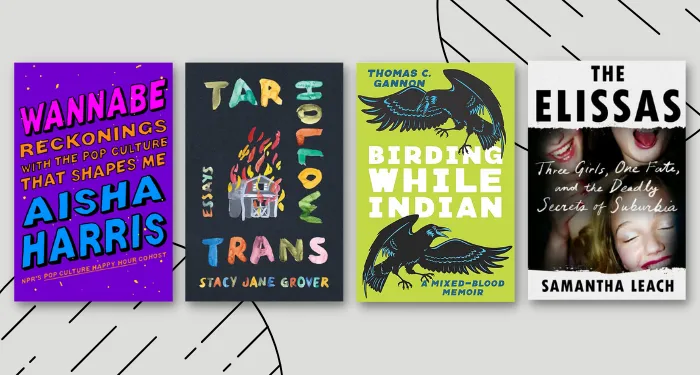
9 of the Best New Nonfiction Releases to Read in June 2023
It’s June! More sunshine, longer days, the official start of summer, and (hopefully) more time to read all the books we’d like to read. (Wait, scratch that — is there ever enough time to read all that we’d like to? I’m not quite sure about that one.) This month brings us an embarrassment of riches: there are so many great nonfiction books coming out, and I’ve put together a list of nine of them to get you started.
There’s something for almost every interest: historical events, pop culture, science, nature, psychology, adventure, and much more. We’ve got a look at the Troubled Teen Industry through a personal lens, a historical memoir, a memoir about trauma and landscape, several fantastic science and nature memoirs, an essay collection about pop culture and identity, and an exploration of one’s trans and Appalachian identities. The topics these books span are so varied and broad, with so many wonderfully unique and thoughtful voices, that the only problem with the books is going to be choosing which one you’ll read first.
So pull up a chair, get your favorite hot-weather beverage and some snacks, get comfy, and let’s take a look at some nonfiction reads that are perfect to kick off your summer.

The Elissas: Three Girls, One Fate, and the Deadly Secrets of Suburbia by Samantha Leach (June 6th)
Leach and her childhood best friend Elissa did everything together, including get into some relatively innocent trouble. But after one incident, their private school expelled Elissa, and she was sent away, into a program for “troubled youth.” These programs are largely unregulated and full of secrets. Less than a year after graduation from one of these programs, Elissa died. As Leach struggled to cope with her grief, she found Alyssa and Alisa, Elissa’s closest friends at the program — and both of them also died, years later. Leach dives into these programs and what she dubs the Troubled Teen Industry, and why all three young women met the same fate.
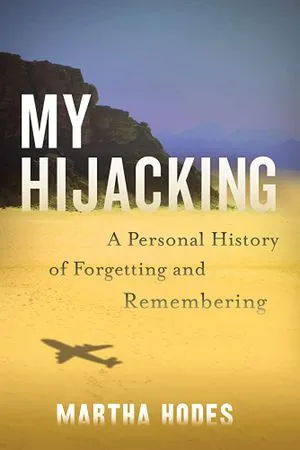
My Hijacking: A Personal History of Forgetting and Remembering by Martha Hodes (June 6th)
On September 6, 1970, Hodes and her older sister were coming back to the States from visiting their mother and grandparents in Israel when their plane was hijacked by members of the Popular Front for the Liberation of Palestine. They were forced to land in the Jordan desert, and she spent six days and nights as a hostage. More than 50 years later, she realized her memories weren’t clear, and she wondered whether it was trauma, repression, or something else. Using archival information, conversations with friends, family, and fellow hostages, diaries, and her childhood memories, she looks at not just her experience but what it was like for her family, and the effects of that experience.

A Flat Place: Moving Through Empty Landscapes, Naming Complex Trauma by Noreen Masud (June 6th)
Blending memoir and nature writing, Masud writes about landscapes and how flat places often get overlooked. She lives with complex post-traumatic stress disorder due to an extremely traumatic childhood, and therefore her emotions are sometimes flattened and her memory is affected — similar to a “flat place.” Writing about her personal experiences and how trauma affects her life, as well as her observations about the nature around her, this is a compelling and beautifully insightful look at place, healing, and emotions.
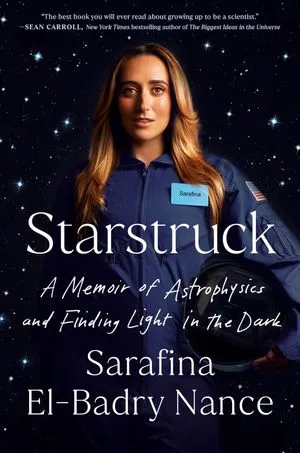
Starstruck: A Memoir of Astrophysics and Finding Light in the Dark by Sarafina El-Badry Nance (June 6th)
El-Badry Nance, an Egyptian American astrophysicist and women’s health advocate, shares about her lifelong love of science, the racist and misogynist barriers she faced wanting to go into the field, the impacts of intergenerational trauma and anxiety, and much more. She writes about being a woman of color in a field that isn’t always welcoming to women in general, not to mention women of color, and how she found her way, nurturing her career and interests and how, like the stars, life is full of change.
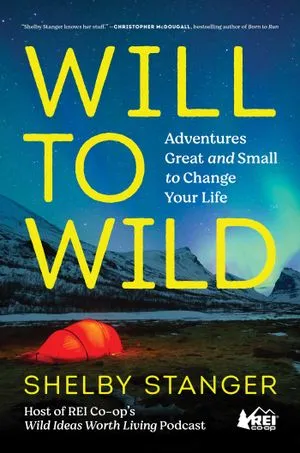
Will to Wild: Adventures Great and Small to Change Your Life by Shelby Stanger (June 6th)
Stanger has long seen the impact of nature on people as an outdoorswoman and surf teacher, and in this book she shares not only plenty of stories of how people changed their lives after being in nature more, but also how to change your life. If this sounds impractical, don’t worry — these are things that even the least outdoorsy person can do to take the first step to make a change. Even if you’re not inclined to get outside, these stories will inspire you to push your own limits, however that might look.
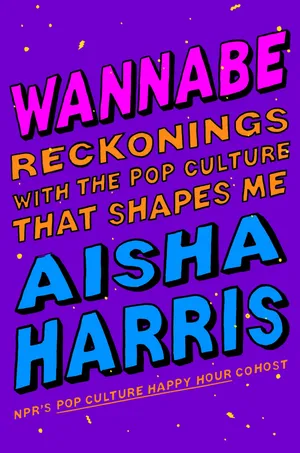
Wannabe: Reckonings with the Pop Culture That Shapes Me by Aisha Harris (June 13th)
This is a sharp, insightful collection of essays looking at pop culture, covering her ’90s childhood until now, and combining personal essay with cultural criticism. She explores the origin story of her own name, complete with surprises and unexpected findings; looks at how the “Black friend” trope has evolved over time; and provides commentary for various shows and movies. It’s full of cultural touchstones and humor, but also thought-provoking observations that reinforce how important pop culture is in our lives and how our identities can be shaped by it.
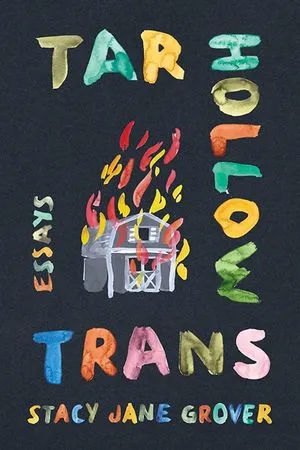
Tar Hollow Trans: Essays by Stacy Jane Grover (June 20th)
Grover would not necessarily consider her childhood as “Appalachian.” Raised in Southeast Ohio, Appalachia brought to mind much more rural areas than her hometown. She went back to the place she was raised to reconcile her identity with the culture in which she grew up and figure out where she belonged in such a label, and found that identifiers like “Appalachian” and “transgender” may be more alike than initially thought. She explores areas of overlap and threads of similarities of experience, and reflects on the experiences of stigmatization with both labels, as well as how these labels are seen, experienced, and understood. It’s an essay collection that feels fresh and thoughtful, drawing you in with its observations.
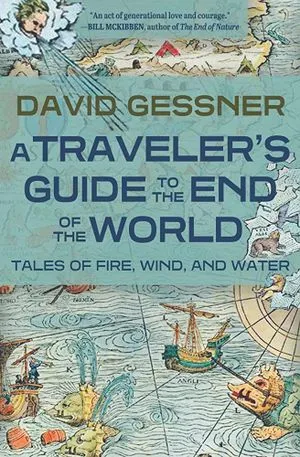
A Traveler’s Guide to the End of the World: Tales of Fire, Wind, and Water by David Gessner (June 20th)
Nature writer Gessner’s new book is a haunting one, but one you’ll definitely want to add to your list. He was 42 when his daughter was born, and in this book he looks at what the world will likely be like when she is his age right now — in 2064. He looks at the future of weather, and what it will mean for geographic areas, and what things have been like so far for his family. If this sounds catastrophic, rest assured, it’s not. While he doesn’t shy away from truths, he also writes with humor and sensitivity, and plenty of anecdotes and discussions with people. It’s a highly readable, thought-provoking book that’s very relevant for right now.
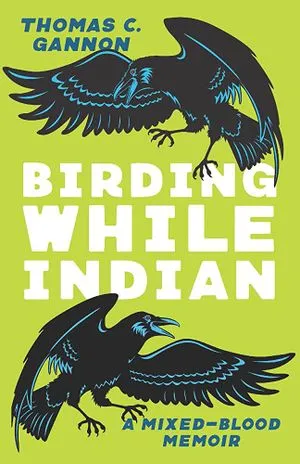
Birding While Indian: A Mixed-Blood Memoir by Thomas C. Gannon (June 27th)
Gannon, who is part Lakota, writes about his more than 50 years birding, what it has brought to his life, and how it has helped him heal, along with finding literature, especially Indigenous literature. He writes about the racism he experienced in schools, the trauma of his time in an Indian boarding school, and the Indigenous erasure present in science and nature. While the topics he writes about are serious and painful, he also manages to retain humor and wry wit in his writing, often musing on the irony of his interests and how they overlap with the painful aspects of Indigenous history and colonialism. It’s a sharply observant memoir and chronicle of nature, one’s life, and experience.
Which ones will you add to your summer reading stack first?
If you’re in the mood for even more nonfiction, check out this post on Appalachian memoirs, and this post on nonfiction by AAPI authors.
As always, you can find a full list of new releases in the magical New Release Index, carefully curated by your favorite Book Riot editors, organized by genre and release date.











